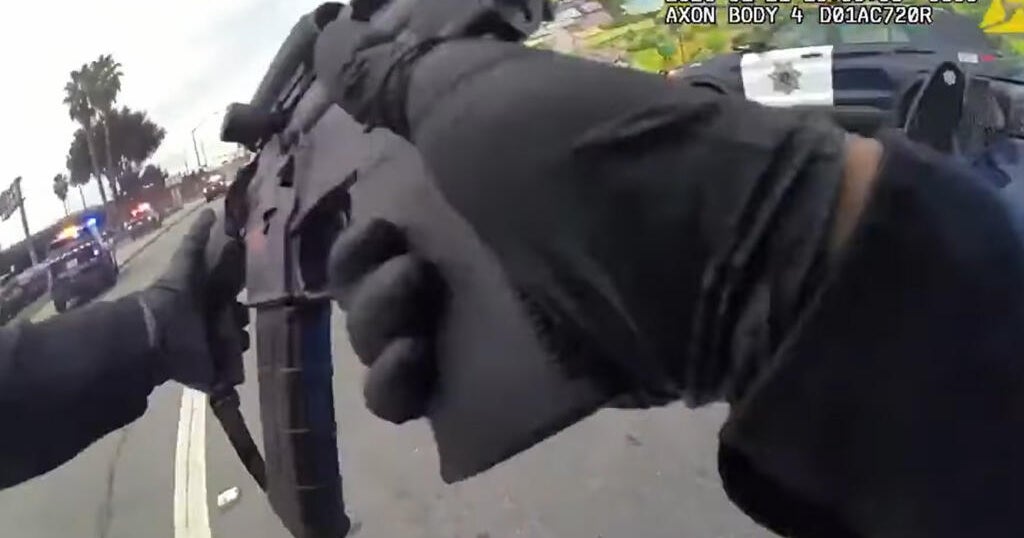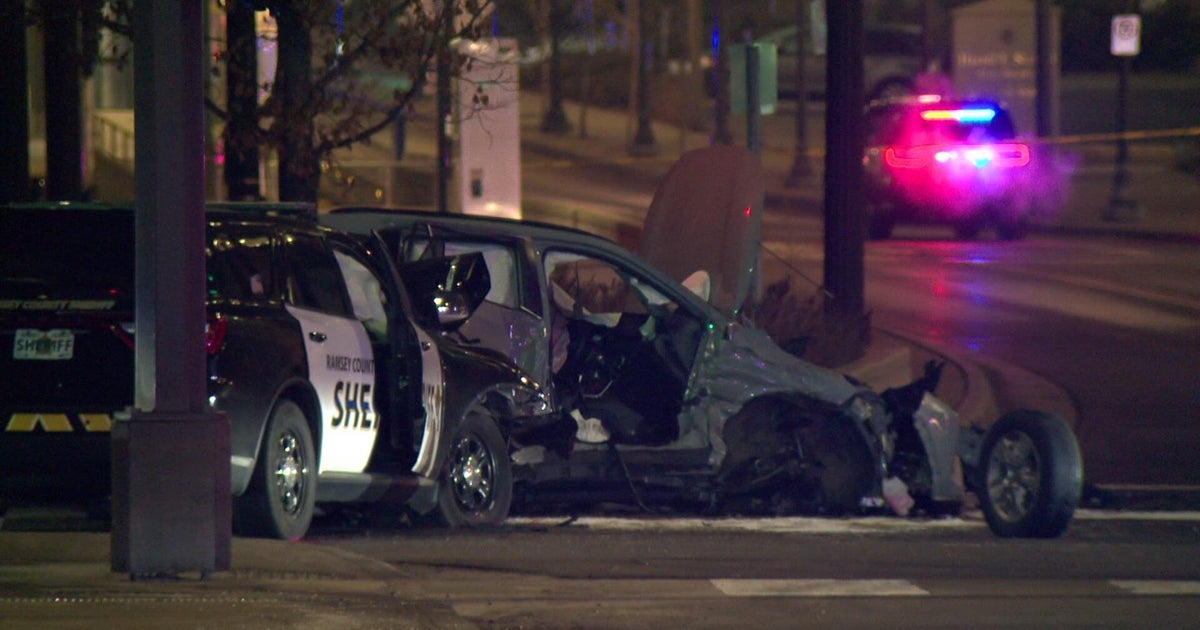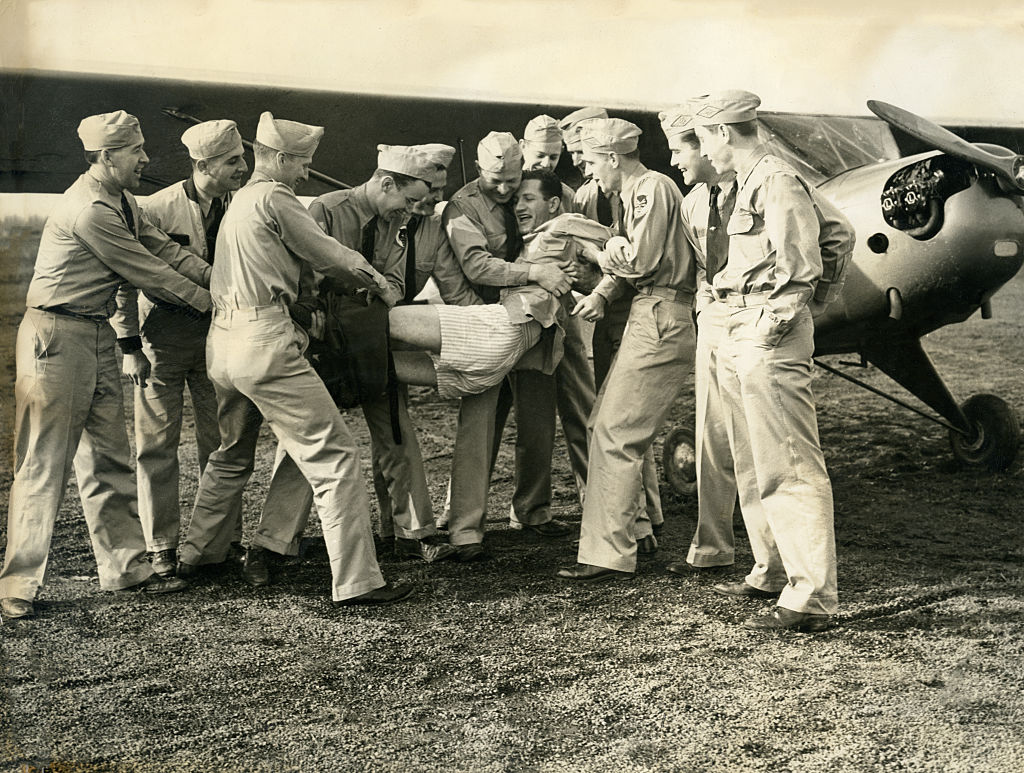Dramatic video captures officers comment on RV warning moments before Nashville bombing: "Like something out of a movie"
As investigators continued to search for a motive in the bombing in downtown Nashville on Christmas, body camera video released late Monday by police offered more insight to the moments leading up to the explosion and its aftermath.
The recording from Officer Michael Sipos' camera captures officers walking past the RV parked across the street as the recorded warning blares. The RV recording can be heard saying: "Your primary objective is to evacuate these buildings now. Do not approach this vehicle."
"That's so weird," Officer Sipos can be heard saying. "That's like something out of a movie."
"Like 'The Purge,'" another officer responds.
Moments later, a thunderous blast can be heard off camera, and the footage then shows officers helping people evacuate. Car alarms and sirens wail as a police dispatch voice calls for all available personnel and people stumble through downtown streets littered with glass.
When Officer Sipos sees people near his patrol car, he instructs them: "Hey, ya'll got to go that way. Dude, trust me, go that way, please."
Motive unknown
In the days before he detonated the bomb, Anthony Quinn Warner changed his life in ways that suggest he never intended to survive the blast that killed him and wounded three other people.
Warner, 63, gave away his car, telling the recipient that he had cancer. A month before the bombing, he signed a document that transferred his longtime home in a Nashville suburb to a California woman for nothing in return. The computer consultant told an employer that he was retiring.
But he didn't leave behind a clear digital footprint or any other obvious clues to explain why he set off the explosion in his parked recreational vehicle or played a message warning people to flee before it damaged dozens of buildings and knocked out cellphone service in the area.
The bombing is prompting new concerns about "lone wolf" terror threats in the United States. "Lone wolf" attackers have proven to be some of the most difficult for law enforcement to stop. Studies show they are often "more educated and socially isolated than group-based actors." said Jonathan Greenblatt, the CEO of the Anti-Defamation League.
"'Lone wolf'-style subjects sometimes choose to commit their crimes not over a period of months," he said, "but in a matter of minutes."
While investigators tried to piece together a possible motive for the attack, a neighbor recalled a recent conversation with Warner that seemed ominous only in hindsight.
Rick Laude told The Associated Press on Monday that he saw Warner standing at his mailbox less than a week before Christmas and pulled over in his car to talk. After asking how Warner's elderly mother was doing, Laude said he casually asked him, "Is Santa going to bring you anything good for Christmas?"
Warner smiled and said, "Oh, yeah, Nashville and the world is never going to forget me," Laude recalled.
Laude said he didn't think much of the remark and thought Warner only meant that "something good" was going to happen for him financially. He was speechless when he learned that authorities had identified Warner as the bomber.
"Nothing about this guy raised any red flags," Laude said.
David Rausch, the director of the Tennessee Bureau of Investigation, said authorities hope to establish a motive but sometimes simply cannot.
"The best way to find motive is to talk to the individual. We will not be able to do that in this case," Rausch said Monday in an interview on NBC's "Today" show.
Investigators are analyzing Warner's belongings collected during the investigation, including a computer and a portable storage drive, and continue to interview witnesses as they try to identify a potential motive, a law enforcement official said. A review of his financial transactions also uncovered purchases of potential bomb-making components, the official said.
Warner had recently given away a vehicle and told the person he gave it to that he had been diagnosed with cancer, though it is unclear whether he indeed had cancer, the official said. Investigators used some items collected from the vehicle, including a hat and gloves, to match Warner's DNA, and DNA was taken from one of his family members, the official said.
The official could not discuss the matter publicly and spoke to the AP on condition of anonymity.
Warner also apparently gave away his home in Antioch, Tennessee, to a Los Angeles woman a month before the bombing. A property record dated Nov. 25 indicates Warner transferred the home to the woman in exchange for no money. The woman's signature is not on that document.
Warner had worked as a computer consultant for Nashville real estate agent Steve Fridrich, who told the AP in a text message that Warner had said he was retiring earlier this month.
The bombing took place on a holiday morning well before downtown streets were bustling with activity. Police were responding to a report of shots fired Friday when they encountered the RV blaring a recorded warning that a bomb would detonate in 15 minutes. Then, for reasons that may never be known, the audio switched to a recording of Petula Clark's 1964 hit "Downtown" shortly before the blast.





